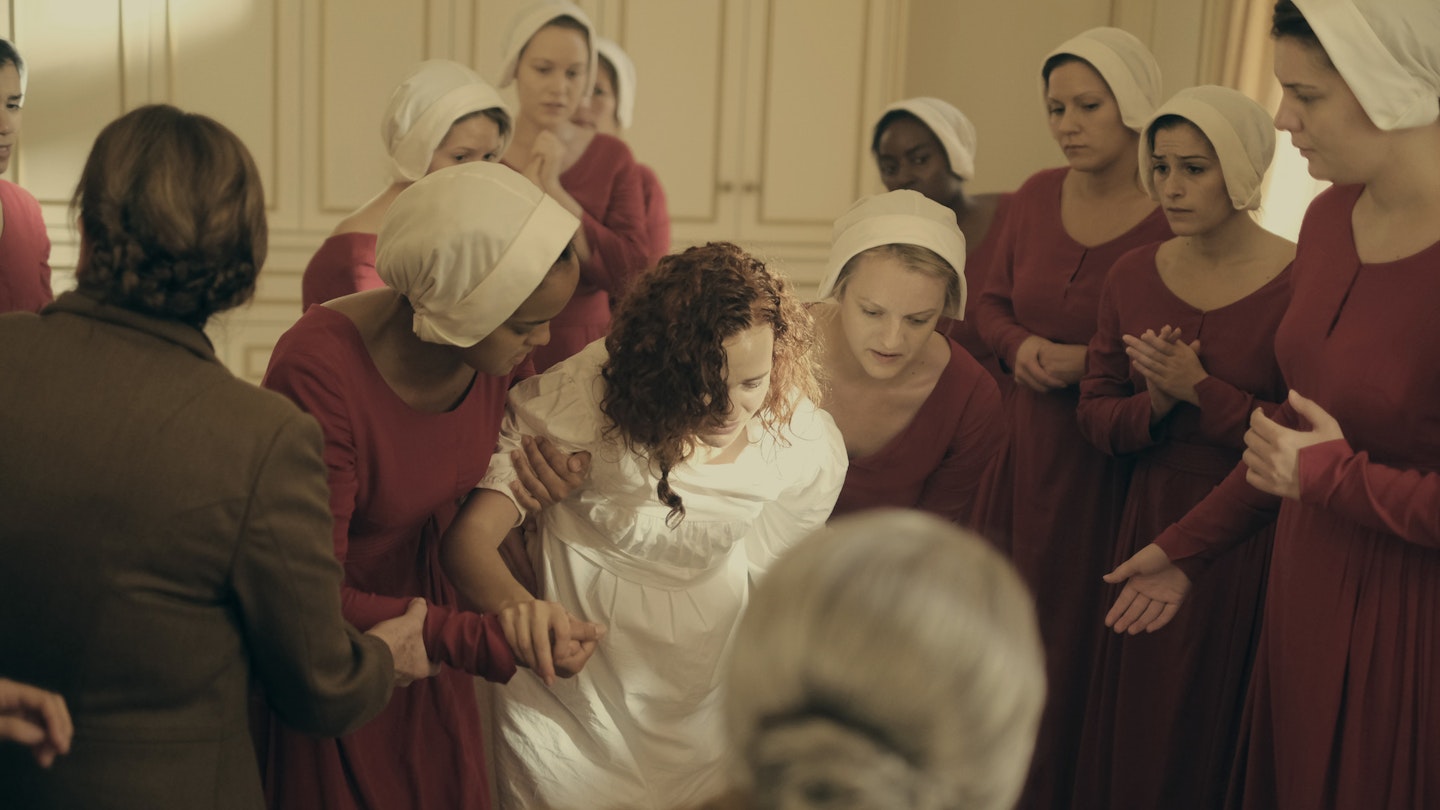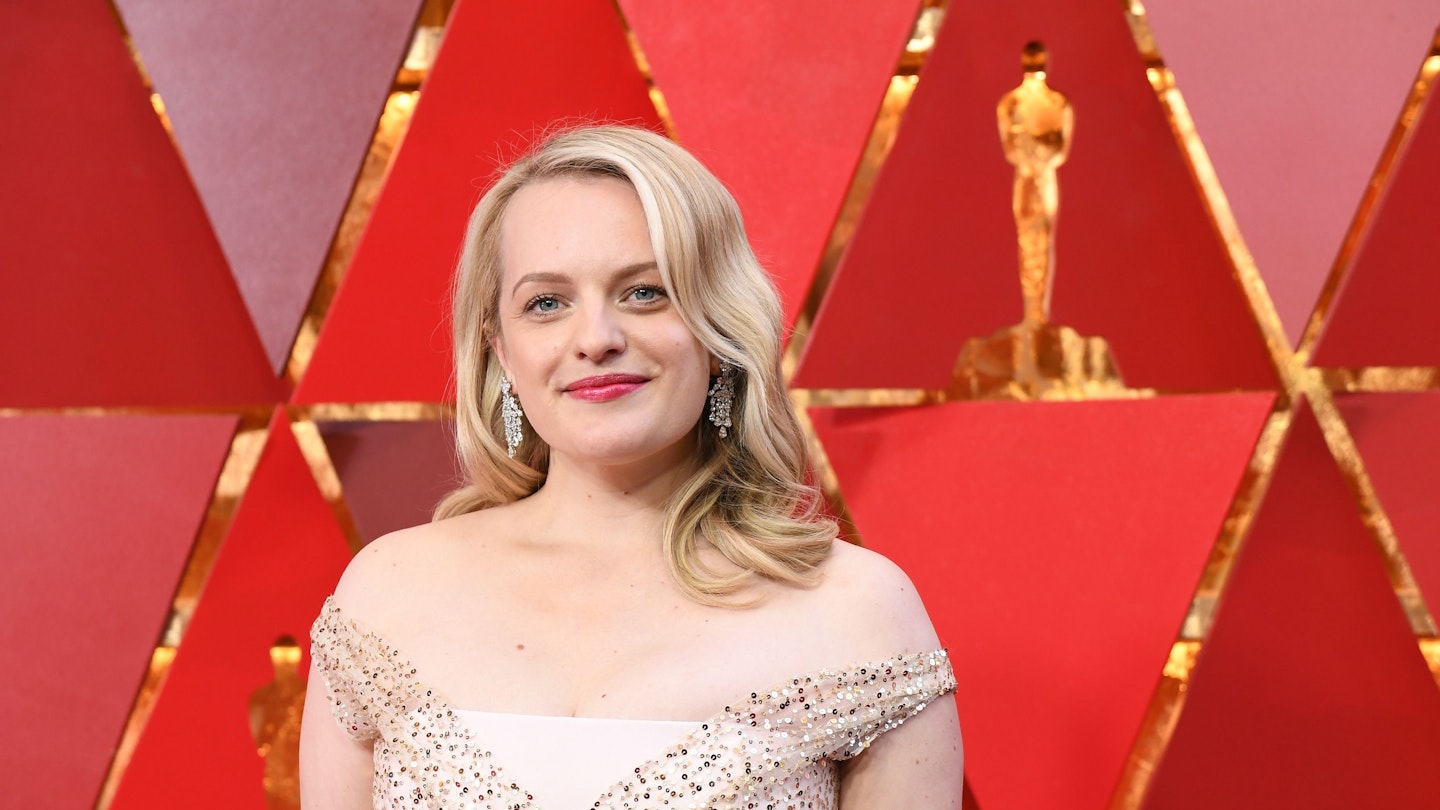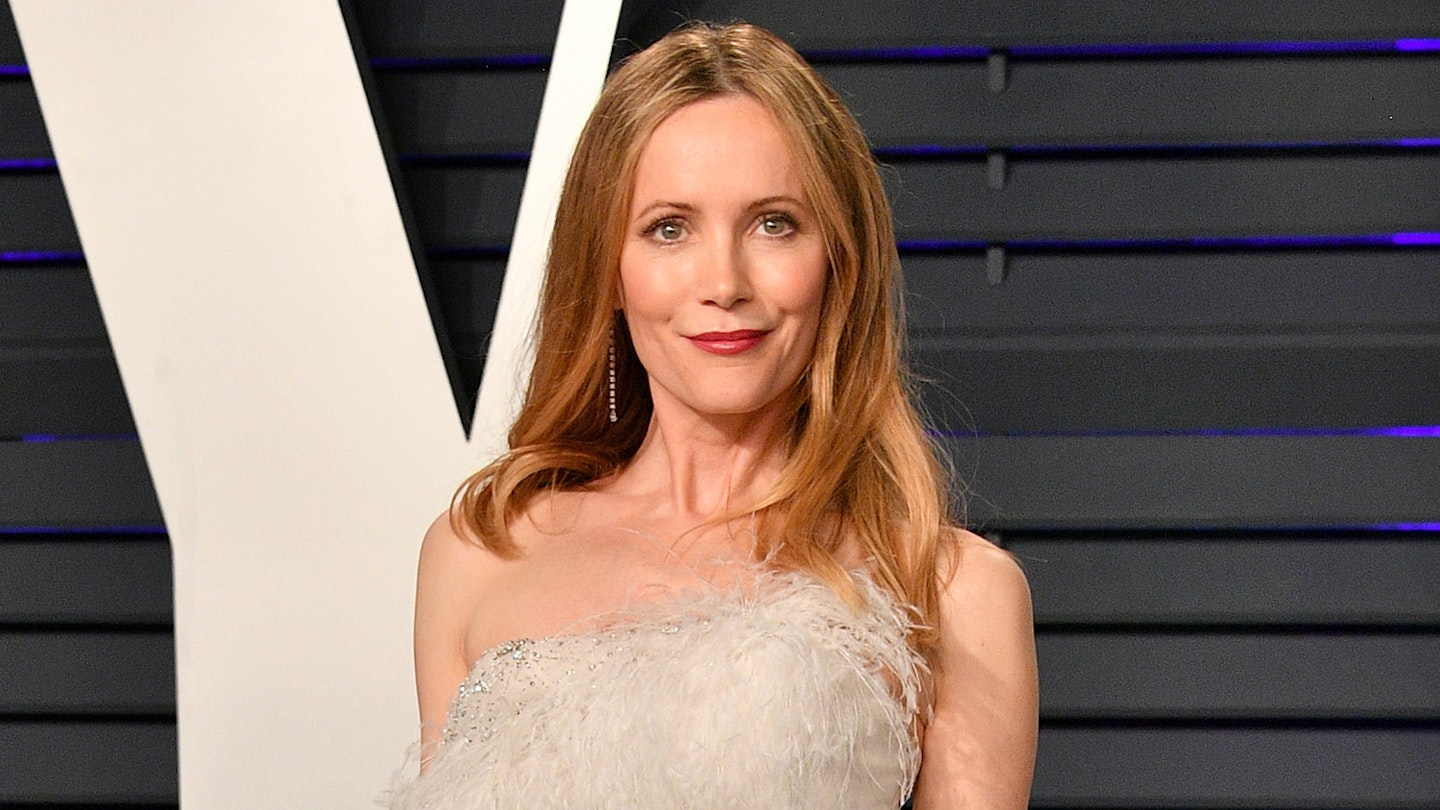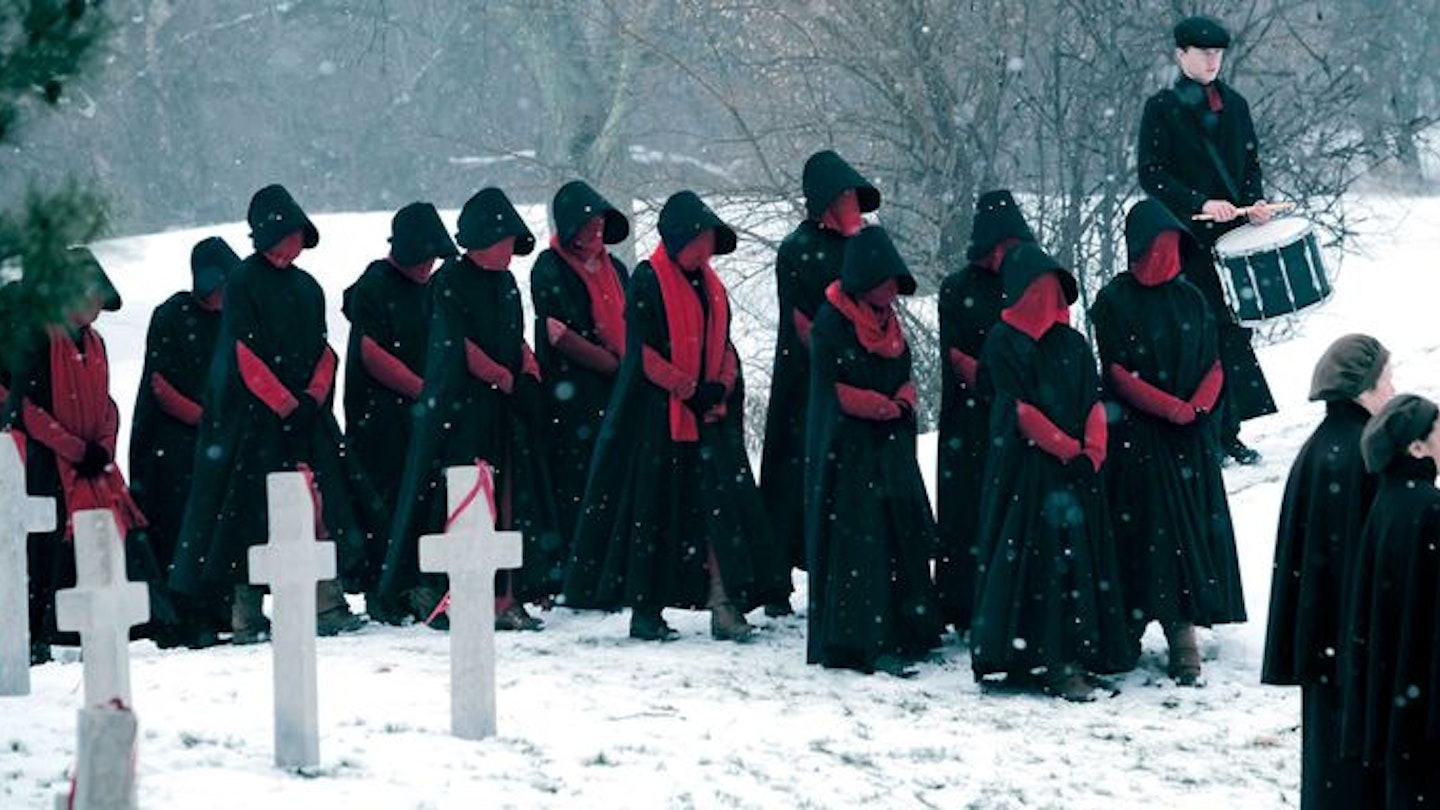It’s hard to think of a show more prescient than The Handmaid’s Tale. Margaret Atwood’s feminist classic might have been published in 1985, but Bruce Miller’s adaptation speaks squarely to today. It’s charged imagery of protests could have been snatched straight from CNN. Its dialogue is often indistinguishable from Twitter threads. It’s unflinching stare at a world inexorably moving toward the political right resulting in the systemic erosion of women’s rights would be enough to make it vital, essential. But it is also perfectly crafted TV, profound, terrifying and heart-breaking, topped by a stellar performance from Elisabeth Moss.
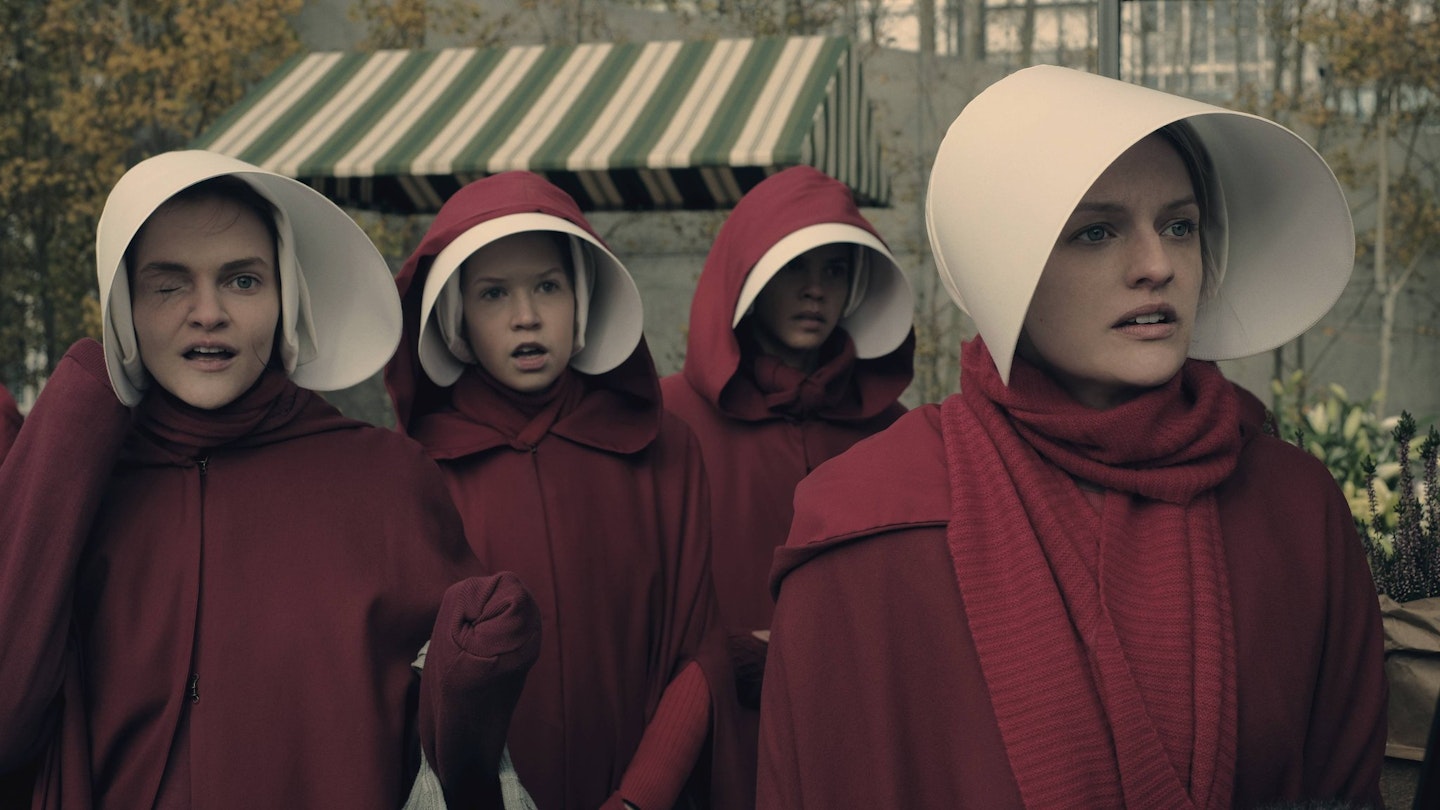
Miller is the showrunner of post-apocalyptic YA The 100 but this is next-level sci-fi dystopia. What used to be called Boston is now the fundamentalist dictatorship of the Gillead, replete with its own religious phraseology (“Praise be”, “Blessed be the meek”, “Under His Eye”) and armed militia. This world is beset by widespread infertility so women capable of giving birth (handmaids) are conscripted to prominent childless couples and forced into indentured baby-making followed by a weird faux birthing ritual. Assigned to Commander Fred Westford (Fiennes) and wife Serena Joy (Strahovski), handmaid Offred (Moss) — named because she is “of Fred” — is trying to negotiate a harsh new world of obsequience and servitude. She remembers life before the dark times (Uber and Craigslist get dialogue checks to ground it in the here and now), a pot-smoking book editor enjoying kitchen table conversations about the patriarchy with bestie Moira while living with nice guy Luke (O-T Fagbenle) and baby Hannah, kidnapped by the state in the opening scene. The flashbacks are not just filler: they are a constant reminder that Offred has a vivid inner life compared to the husk of a woman we see now and set up the desire to get Hannah back that is set up to drive the unfolding story.
Although it is a cautionary, if not incendiary, tale of the ways religious zeal and hard-line regimes combine to disenfranchise women, it is the women in this world who mete out the violence. The handmaids are presided over by Aunt Lydia (Ann Dowd), a kind of Nurse Ratchet meets Annie Wilkes who orchestrates mass shaming and random acts of cruelty. Everything The Handmaid’s Tale tackles, it does with 100 per cent commitment. Its sex (or more precisely intercourse) scenes are among the least ever put on TV. The violence isn’t for the feint-hearted either. Handmaid’s are cattle-prodded for insubordination or kicked to death in organised stampings. Gender traitors (homosexuals) are hanged and showcased on a wall by a pretty river walk. Even when it serves up a game of Scrabble between Offred and the Commander, it is the most intense unsettling triple word action imaginable.
The first three episodes are directed by Reed Morano, a cinematographer best known for Vinyl and Beyonce’s visual album Lemonade, and her storytelling finds more cinematic beats than Volker Schlondorff’s 1990 film version. Morano’s approach has hints of Children Of Men’s bleached out reality, Kubrick’s precise composition — she employs a telling use of God’s eye views — and a painterly control of colour: costume designer Ane Crabtree deserves kudos here, the handmaiden’s vivid scarlet capes and starched bonnets in stark contrast to the pale green chill of the wives dresses. The show also finds a smart, piquant use of music. A classically tinged version of Blondie’s Heart Of Glass accompanies a terrifying protest turned riot. A tiny victory for Offred is scored by Simple Minds’ Don’t You (Forget About Me) recalling The Breakfast Club’s punch-the-air triumphalism. But, as with any speck of hope in The Handmaid’s Tale, it is short-lived.
With The West Wing, Mad Men, Top Of The Lake and now this, Elisabeth Moss can lay claim to be the best actor working in TV today (if nothing else, she has fantastic taste in projects). With much of the show played out in close up on her face, she turns passivity and anger on a dime. her delivery of the ever-present voiceover revealing a sharp, funny mind beneath the bonnet. She is joined by a clutch of great supporting performances — particularly Bledel as Offred’s rebellious shopping partner and Strahovski as the Commander’s cold wife — that make The Handmaid’s Tale a rare showcase for American women on TV, both in front of and behind the camera. Praise be indeed.
